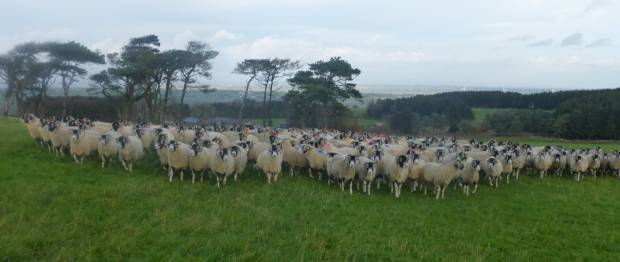Misleading media messages about sheep farming needs to stop
2nd July 2019
The National Sheep Association (NSA) is reminding the media of their responsibility to ensure statements made by presenters are factually correct.
NSA is seriously concerned that mainstream media is painting British sheep and cattle farming in a negative light, suggesting it is a key cause of global warming and GHG emissions. NSA Chief Executive Phil Stocker comments: “Our media should be closely examining the ‘facts’ they are stating, particularly those who claim to have an interest in farming and countryside topics. While I don’t have a problem with last week’s BBC Countryfile talking about vegan meals, I do have a problem when they imply they are better for the environment than meals containing meat. For years we have been affected by negative press based on incomplete carbon foot printing science and guidance. Its this science that has suggested that the more extensive the farming approach the worse its climate impact is. But this is now outdated, and we have a far more holistic understanding of life cycles and also of the trade offs between greenhouse gases, the land-based environment, resource use, and productivity. The media is behind the curve and is still peddling outdated and misleading information that risks damaging something that is actually of great benefit to the environment and society.”
Statistics frequently used are based on global research, meaning huge intensive units, common in other countries across the world, with thousands of animals reared inside are included in the numbers. Mr Stocker adds: “To include UK sheep farming, which is extensive, predominantly grass based and regenerative, with figures that include huge intensive and crop fed units housing thousands of animals in one building is preposterous. Here in the UK sheep, and most of our cattle, are fed on grass-based diets and it is unusual for sheep to be housed and fed for anything more than short periods. Grazing animals contribute positively to the landscape and environment and the myth that they are killing the planet through methane is just about broken.”
NSA also emphasises the importance of really thinking through the sustainability of diets. Mr Stocker comments: “I would argue that eating extensively reared grass-based meat produced nationally, regionally, and locally is much better for the environment than industrially produced artificial substitutes that are increasingly appearing on our shelves as ‘healthy vegan options’. Things like almond milk, palm oil, and soya-based foods, with added supplements to make sure they are nutritious are hardly environmentally benign or natural.”





